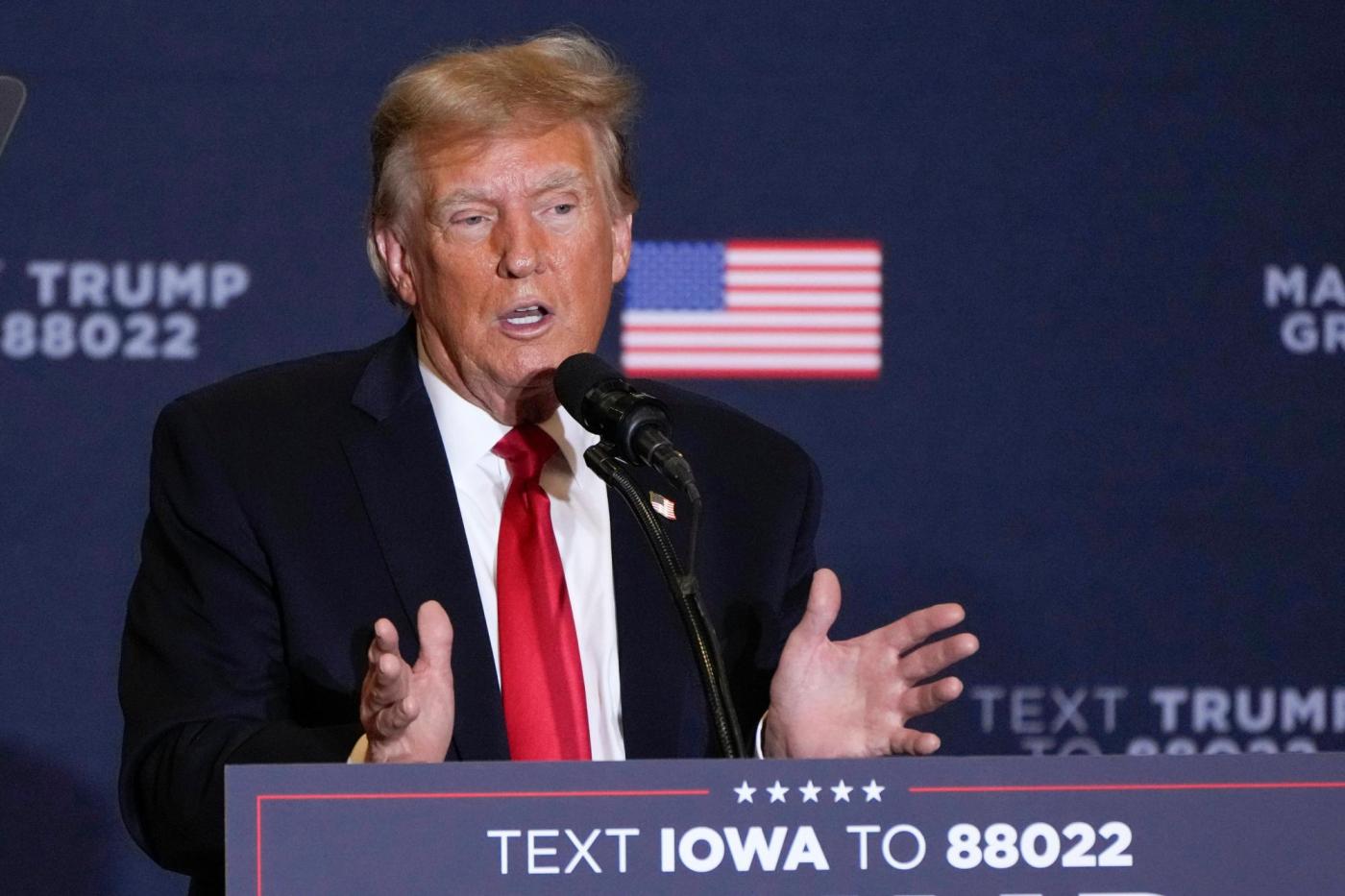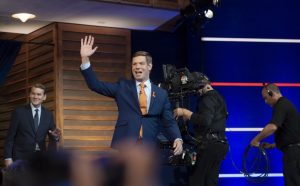
Advocacy group challenges Donald Trump’s ballot eligibility in Massachusetts
An advocacy group filed a challenge Thursday that seeks to remove former President Donald Trump’s name from the Massachusetts presidential primary and general election ballots, arguing the Republican is not Constitutionally eligible to appear because of his role in the Jan. 6 attack on the U.S. Capitol.
Free Speech for People alongside Boston-based Attorney Shannon Liss-Riordan put the challenge before the Massachusetts Ballot Law Commission, which has the authority to hand down a decision on the statutory or constitutional qualifications of any nominee for national, state, or county office, according to state law.
The move comes after both the Colorado Supreme Court and Maine Secretary of State Shenna Bellows issued rulings that found Trump ineligible to appear on each state’s respective ballot under Section 3 of the 14th Amendment, a Civil War-era clause that bars from office anyone who took an oath to uphold the Constitution but engaged in an “insurrection or rebellion” against it.
Five individual voters, including former Boston Acting Mayor Kim Janey, brought the legal challenge, which asks the commission to “abide by Section 3 of the 14th Amendment and bar Trump from appearing on the state ballot,” Free Speech for People said in a statement.
Liss-Riordan, in a statement provided by the organization, said two other states have already recognized that Trump’s “instigation of and participation in the insurrection three years ago provide overwhelming cause for his disqualification from holding office in the United States.”
“Today’s legal action is not about partisan politics but about upholding our Constitution, and that is why Massachusetts voters across the political spectrum have joined together to challenge Donald Trump’s wrongful placement on the Massachusetts ballot,” Liss-Riordan said.
In the group’s legal filing, attorneys wrote that the challenge was brought by Republican, Democrat, and unaffiliated Massachusetts registered voters who object to Trump appearing as a presidential candidate on the Republican Party presidential primary ballot.
“Trump may not appear on the presidential primary or general election ballots because, after taking the oath of office to support the Constitution, he engaged in rebellion and insurrection against the Constitution of the United States and gave aid and comfort to the enemies of the same and is therefore disqualified from the presidency (and any other public office) under Section 3 of the Fourteenth Amendment,” the legal filing said.
The other objectors are Bruce Chafee, a registered Republican who works in bio-pharmaceuticals; Mark Brodin, an unenrolled voter who works as a law professor at Boston College Law School; Elizabeth Bartholet, a registered Democrat who works as a law professor at Harvard Law School; and Augusta McKusick, an unenrolled voter, retired nurse practitioner, and former member of the Orleans Board of Health.
The Massachusetts Republican Party said it opposed the latest effort to remove Trump from the ballot in Massachusetts “through administrative fiat.”
“We believe that disqualification of a presidential candidate through legal maneuverings sets a dangerous precedent for democracy. Democracy demands that voters be the ultimate arbiter on suitability for office,” the MassGOP said in a statement.
Free Speech for People has also filed challenges to Trump’s eligibility to appear on the ballots in Minnesota, Michigan, Oregon, and Illinois. Michigan and Minnesota did not bar Trump from the ballot but left open the possibility of a general election challenge, according to the organization.
The Oregon challenge is pending before the state’s supreme court while the Illinois objection is before the state’s Board of Elections, Free Speech for People said. The group has previously filed similar challenges against U.S. Rep. Marjorie Taylor Greene and former North Carolina Congressman Madison Cawthorn “for their role in the Jan. 6 insurrection.”
Trump on Wednesday asked the U.S. Supreme Court to reverse the Colorado ruling bumping him from the ballot, with his lawyers arguing it disenfranchised millions of voters in the state and could be “used as a template to disenfranchise tens of millions of voters nationwide.”
In the wake of the U.S. Supreme Court filing, Trump campaign spokesperson Steven Cheung said Democrats “are obsessively violating the American voters’ Constitutional right to vote for the candidate of their choice.”
“This is an un-American, unconstitutional act of election interference which cannot stand. We urge a clear, summary rejection of the Colorado Supreme Court’s wrongful ruling and the execution of a free and fair election this November,” Cheung said in a statement.
The Massachusetts Ballot Law Commission is a five-member bipartisan body whose chair must be a retired judge and commissioners are appointed by the governor. If the commission determines that it has jurisdiction over the matter, they can hold a hearing on an objection.
The proceedings are similar to judicial ones, and the decisions of the commission can be appealed in court, according to Secretary of State William Galvin’s office, which serves only as a clerk for the commission.
A spokesperson for Galvin confirmed the objection had been filed and that it will go to the commission for their consideration but said the secretary had no comment on the matter.
Galvin has said in the past that Trump’s name will still appear on the Republican presidential primary ballot in Massachusetts regardless of any court decision. State parties submit names for ballots, and the Massachusetts Republican Party put forward Trump, he has said.
But eligibility to serve in office is a different question.
“If for whatever reason the Democratic Party wanted to put (former President Barack) Obama or some other ineligible person, clearly ineligible person on the ballot, they could. But it wouldn’t mean that they’d be automatically eligible to be serving again,” Galvin previously told the Herald.
Associated Press and previous Herald materials were used in this report.


